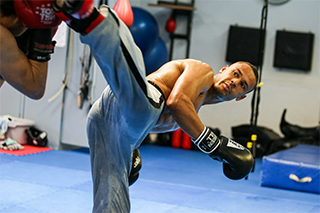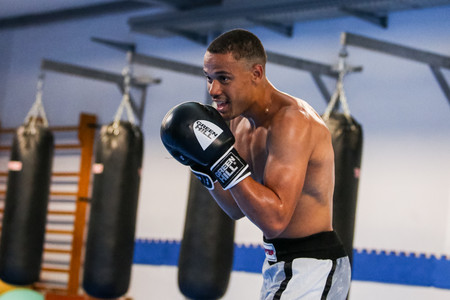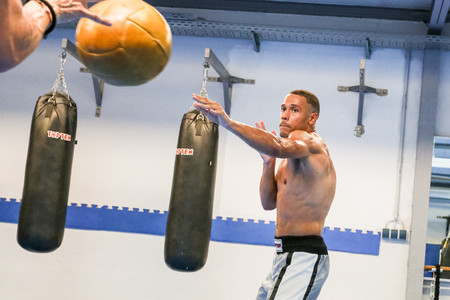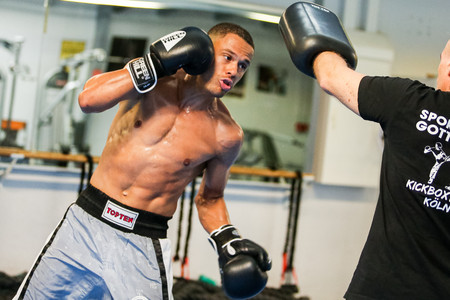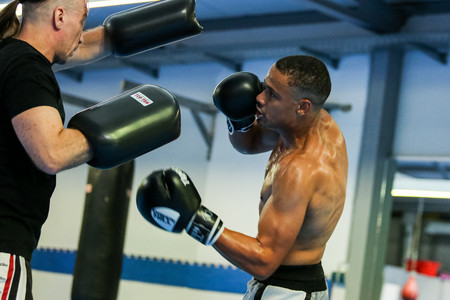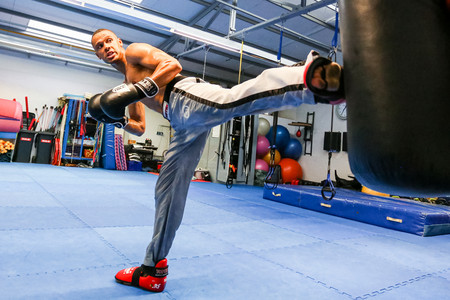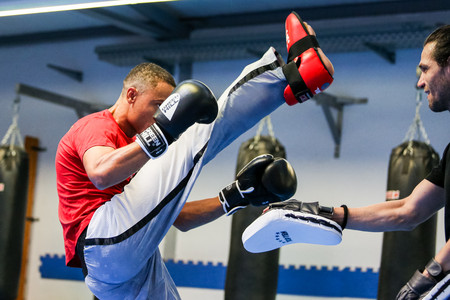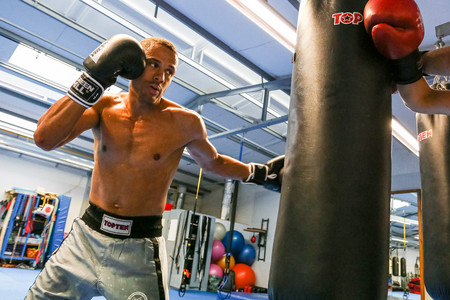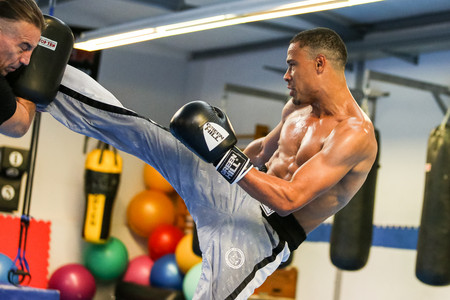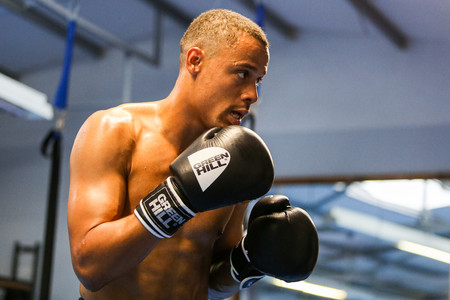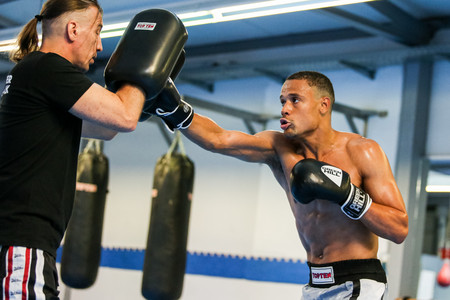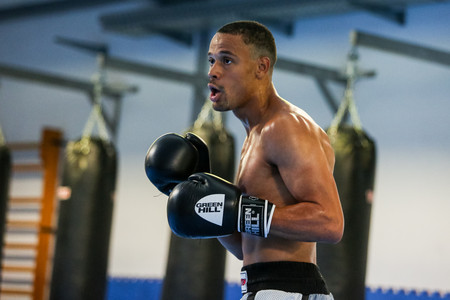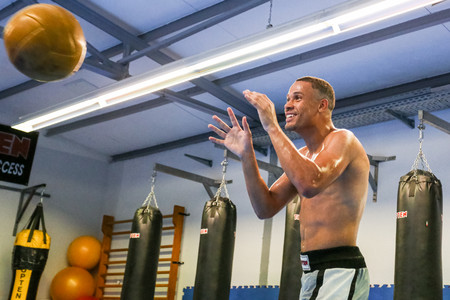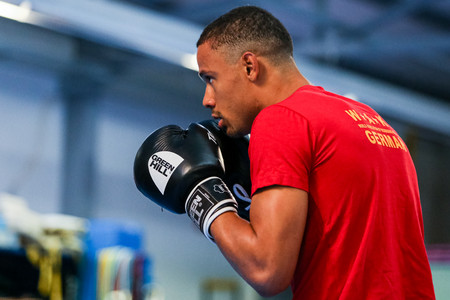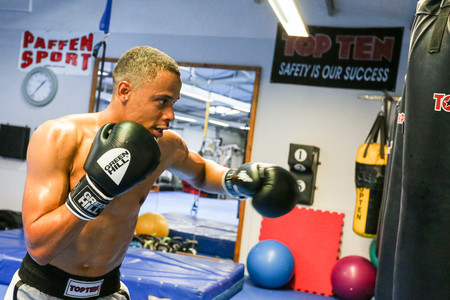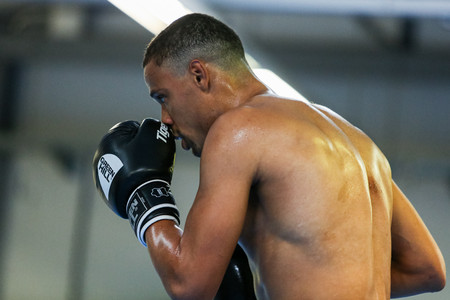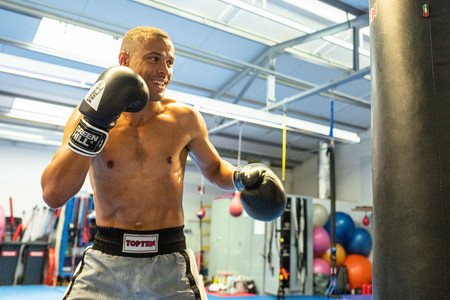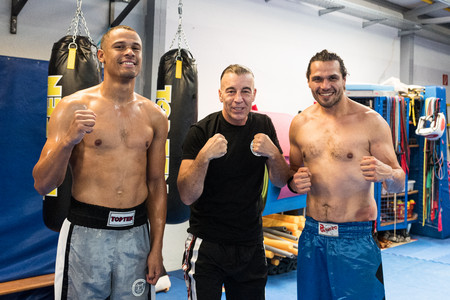You just won the World Cup in kickboxing in Hungary, did it hurt?
A little bit. But at least, less than if I had lost. Unfortunately, since the best kickboxers in the world compete at the World Cup, you never win without getting hit yourself. But this year I managed to avoid mostmistakes in defense.
This is your third time on the podium at the World Cup. How did you get into the sport?
More or less by chance. I actually played soccer throughout my childhood and youth. During my exchange year in the USA, I tried American football and basketball. When I came back to Cologne, I wanted to find a new sport for myself. That's why I accompanied a good friend to his kickboxing training and was immediately hooked on the sport.
When did you realise that you were really good at it?
There was not really that one moment. In WAKO you qualify progressively for bigger and bigger tournaments. When I was regional champion in NRW for the first time, I just wanted to prove to myself that I could also fight in the German championship. When I was German champion for the first time, I wanted to prove to myself that I could also fight internationally. When I was able to accomplish the goals little by little, I recognised at some point how much I had progressed and that I am now actually one of the best.
Would you describe yourself as ambitious?
Definitely, I think especially in combat sports you need a strong will to win in order to get through tough training sessions and the competition.
You won the Royal Statistical Society Prize as a graduate of the University of Cologne. However, you received this prize for your master's degree in statistics at the London School of Economics (LSE). How did you get to the LSE?
In my bachelor studies, I had heard about the LSE as a renowned and very international university for economics and social sciences. That appealed to me, and I wanted to study there. At first, I had planned to do my Master in Economics at the LSE. However during my gap year, I was able to compare my work at the chair of Prof. Ockenfels with my work at a strategy consultancy and an economic consultancy. That's when I realised that I wanted to do research first. Since I was interested in many empirical studies in research, I wanted to acquire the toolkit I needed for this field with a master's degree in statistics. Thanks to scholarships from the German National Academic Foundation and the DAAD, I was able to finance my studies at the LSE. Of course, I was particularly pleased to receive an award for my academic achievements from such a renowned institution.
After your master's degree in statistics, you did a master's degree in economics in Cologne. Where do you see the differences between Cologne and London or the University of Cologne and the LSE?
London, of course, offers all the advantages of a cosmopolitan city. You live in a city with people from all over the world. That's how I got to know incredibly interesting people. In addition, there is always a new restaurant, a new event, or a new place to explore because the city never sleeps and is so big.
Cologne on the other hand is smaller and more familiar. It has that positivity and joie de vivre and is the perfect compromise of big city and familiarity for me. I have to say that, as a native of Cologne, I'm also a bit biased. Cologne is simply my home.
What I appreciated about studying at the LSE was the individual support I received. There were no courses in which one teacher was responsible for more than 20 people or at some point didn't have time to answer questions. In addition, my fellow students were all very impressive personalities who had experienced and achieved a lot.
At the University of Cologne, I liked how much freedom of choice I had. This freedom enabled me to shape my studies in a way that suited me perfectly.
Now you are doing your doctorate with Prof. Dr Ockenfels, on what topic?
I am mainly concerned with how to optimally design markets and mechanisms. This includes the interaction of different experts, but also the interaction of experts and artificial intelligence. For example, I am investigating empirically whether people who receive a second opinion from another doctor before a possible operation have better health outcomes than comparable people who do not. In another project, I am also investigating whether machine learning can be used to predict the results of mixed martial arts fights better than the bookmakers.
Do you find it difficult to arrange competitive sports and work?
You definitely have to plan ahead. But then it's always possible to manage the work and sports load in such a way that the most important things don't happen at the same time. Since I love doing both, I'm happy to make the necessary compromises such that both work out.
What are your plans after graduation?
I don't have an exact plan yet. I could well imagine staying in research after my doctorate. It would also be cool, however, to implement some of the skills or knowledge I have developed in the private sector. I will just decide when the time comes.
Are there skills from kickboxing that help you in your everyday work and vice versa?
From kickboxing, I learned how to deal with setbacks and how to persistently pursue and implement my goals. That also helps in research. In doctoral studies, analytical skills are trained a lot. On the one hand, this helps with creating a good training plan and adjusting to each opponent separately. On the other hand, the ability to think quickly and well when stressed helps to decipher the feints and deceptive maneuvers of my opponents directly and to adapt my behavior flexibly to surprising changes in tactics. It may sound like a cliché, but 90% of a fight is actually won mentally. That's exactly what I find appealing about kickboxing.
You know the WiSo slogan: "Today's ideas. Tomorrow's impact. ". Where do you see your "Tomorrow's impact"?
I hope that my research can contribute to a better understanding of markets and mechanisms to make more qualified decisions, for example in health care Helping to implement these findings, in reality, would be the impact I would like to see.
In terms of kickboxing, I hope I can help develop our sport and as one of our two athlete spokespersons, help improve our federation. I.e., to support clubs in youth and integration work and to create better conditions for all athletes to practice their passion.
Interview led by Mhiara Mühlbauer.
Foto Credits: Lorraine Hoffmann
